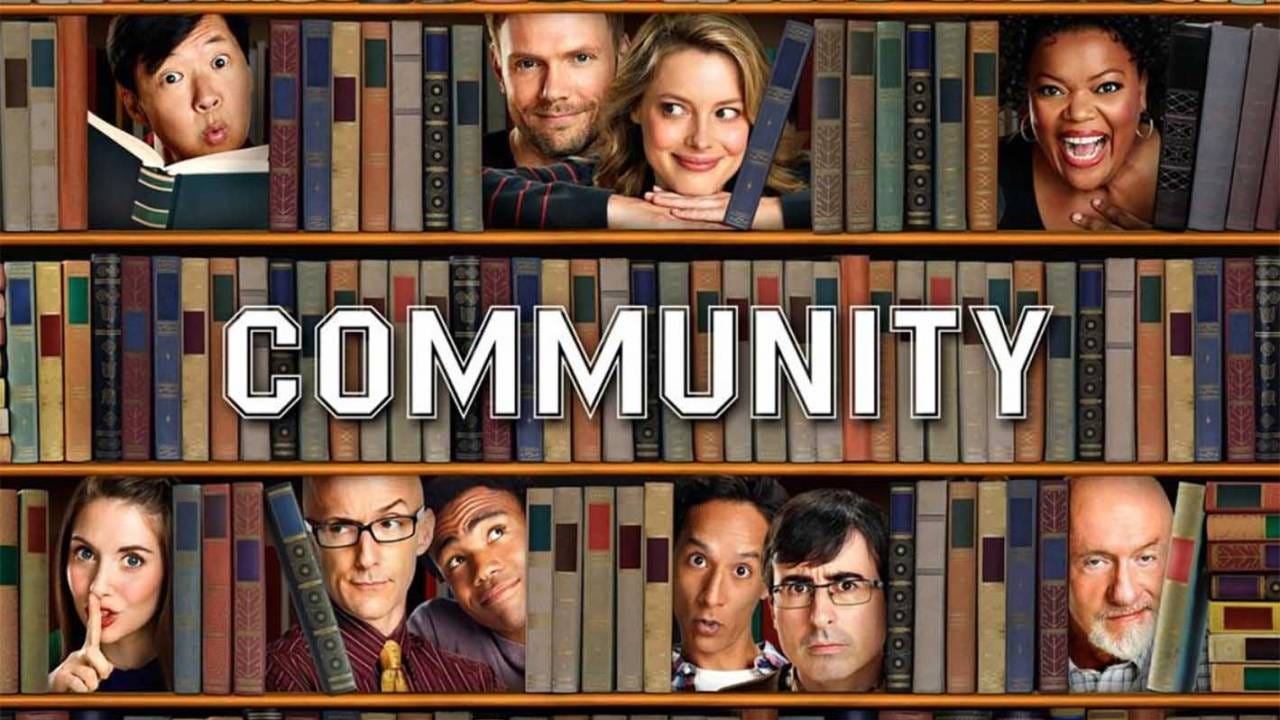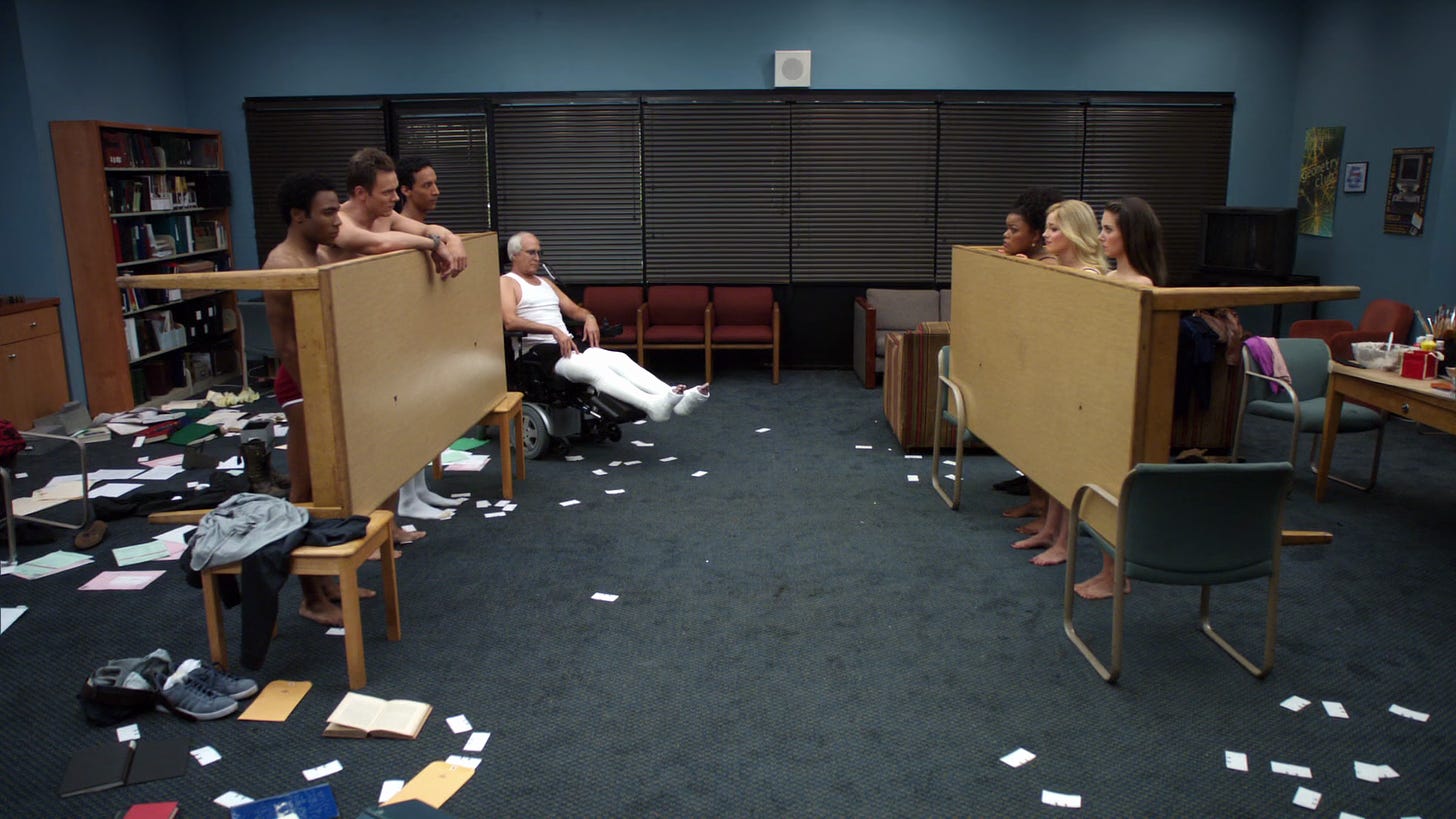Musing on Community Building
A totally non-comprehensive list of what makes a good one, in my humble opinion
Wow, has it really been that long? A month already? Sorry for not keeping up my end of the bargain… I’ll do better.
Anyway, how are you? Well, seeing as this text is a bit of a one-way conversation (but sound off in the comments with how you're doing!), I'll have to do the impolite thing of telling you how I'm doing first.
I am doing much better; thank you so much for asking! Seeing as January's indignation of a herniated disc was pretty rough1, it has also been decreed the indignation of February. My pain is generally more manageable. I can walk now! And I get to do fun physical therapy exercises like lying face down for a couple of minutes at a time. I call it doing the stationary worm.
I was also busy writing a bunch for my project (which I guess is a real thing now), laying face down for my “exercises”, and going on short walks around my neighborhood. I also had the honor and beautiful experience of attending the Tin House Winter Workshop, where I met beautiful souls who have incredible talent. The writing craft lectures! The participant readings! The online karaoke! That space brought all of that plus more.

Experiences like this have made me think a lot about community. Community is, as we would say in science, a sexy term these days. Everywhere you go, people are so concerned about building community. People thank their communities all the time. You can't leave your house without a reference to a community being hurled in your general direction.
I know that last paragraph sounds very cynical, but I genuinely think the community hype is well deserved. We are all part of communities, whether we want to think of ourselves as community members or not. I have nothing but thanks and appreciation for the communities that have held and supported me these last couple of weeks (but really my whole life). I am as my communities made me.
So, in the spirit of sharing what I've "learned" during my time being more conscious about building and sustaining communities, here is a list of what, in my personal/non-professional/not-MECE2 opinion, makes a good community:
The best communities have clear intentions: A writing group? An artists' collective? An exercise club? Those are all communities with very clear intentions: we are here to do/because of X. Organizing becomes more natural when everyone has the same general goals. Communities may occur organically, but once you organize them around an intention, you become more mindful of member dynamics and shared values. More importantly, you can start evaluating whether the community organization is serving its destined intentions: are the writers writing? The artists artsing? The exercisers exercising? If the answer is no or not much, now you have some thinking to do. Having a shared intention also serves as a forcing function to make every community member personally think about their intentions and values. It makes you think about what you are bringing to the table (sometimes it's snacks for the weekly meeting)
The best intentional communities are built on trust: I can't think of a solid community I have been a part of where there wasn't an innate sense of trust. I can think of plenty of communities I have left where the trust between members and/or organizers has been irreparably broken. Once that trust is broken, there needs to be enough trust to discuss the brokenness and how to regain that sense of trust. Yes, I wrote trust three times in that last sentence. That was intentional (ha!). Because even when some trust is broken, if there is no underlying belief in the possibility of repair and a sense of safety to communicate the fault, then there is no point in continuing to be a member of that community. Get yourself to safety. Rebuild from there. There is no reason to stay in suffering to be a member of a team. If they ask you to do something that hurts you, they do not share your values or have your best interests at heart. Leave.
The best intentional communities built on trust have sufficient framework to serve their members: Not every community needs a binder full of bi-laws and a governance board. Some do. Some need some sense of leadership to organize programming and scheduling, someone to guide the cohort along some path. Some don't; some are just a collective of equals sharing with each other. There is no right or wrong; there is just what works best for the people in that community at a given time.
The best intentional communities built on trust have sufficient framework to serve their members and can adapt to their needs over time: Maybe everyone in the writing group is suffering from a collective hysterical writers' block.3 Maybe the President Prefect of the Exercise Club now has a baby and can only come once a month. That happens. Maybe your cycling adventures are on pause for a while because you herniated your L5-S1 disc in your back (guilty). Things change, people change. Sometimes, the intention or governance of the community no longer serves you, so you must leave. Sometimes, the intention or governance of the community changes with their members. Brittle frameworks don't make for longevity. You and yours should be able to change with the times.
Finally, being a member of an intentional community must bring you something good!4 It sounds basic, but if being a member of your writing group is causing you heartache and stomach ulcers, maybe leave? If you don't trust the new President Prefect of the Exercise Club and think they're a twat, leave and go to another club. Or run by yourself for a while if that's what's calling you. Sure, you sometimes have to make some sacrifices and go to a meeting when you're feeling lazy, but there's a line. You can tell when that line has been crossed and you are no longer getting a net good out of your association with those people. You can feel it in your heart.
Ultimately, the best community is the one where what you put in is multiplied by the work and efforts of those in it and returned back to you with interests. Building and maintaining intentional communities takes time and work: to organize, cultivate, hear people out. But it is a worthwhile effort: life is so much sweeter when you share it with others.
Anything you think I've missed? I'm curious to hear what you all have to say, members of this online community!5
You don’t need to hear about how I’m not permanently afraid of coughing and sneezing. I’m working through it in therapy.
Mutually Exclusive Collectively Exhaustive, which is a phrase that consultants use when referring to: a) themselves because they are both good at excluding and generally exhausting and b) a list they don’t like
What an amazing short story that would make
I’m not continuing the runoff sentence, enough is enough
Hopefully it's not that I'm the twat here; but if true that is important feedback I need to hear






This is awesome thanks! I am saving this to checklist against as I build another community I'm working on. Cheers!
First off I must say I haven't stopped internally chuckling at the "stationary worm" comment at the beginning of this post. At least you find humor in your injury. That is quit a useful skill.
Second, what a great exploration of community. I especially liked this bit: "Brittle frameworks don't make for longevity. You and yours should be able to change with the times." A perfect metaphor, and one that can be easily felt in the human body.
Have you read the book Tribes by Seth Godin? I think you'd enjoy it.